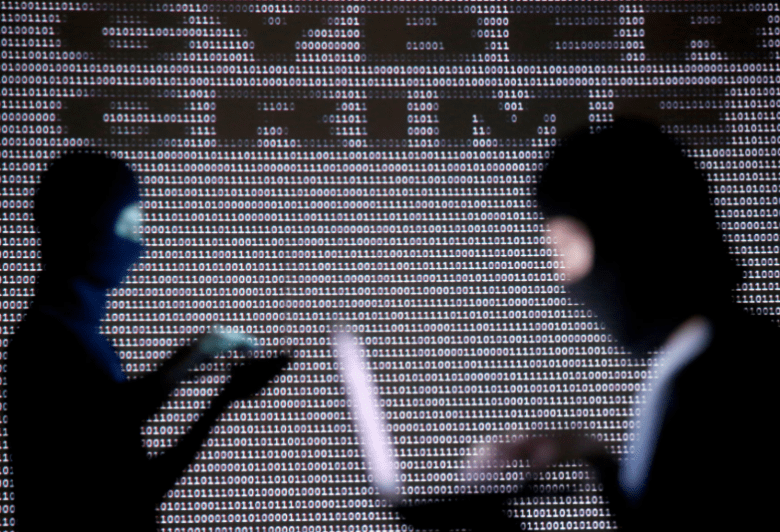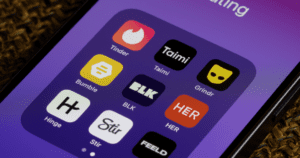Hacker Breach: Tea App Hacked as Hackers Leak Photos and IDs from Viral Dating Safety App That Vets Men
In an alarming cybersecurity incident involving the Tea app, a U.S.-based women-only app with 1.6 million users, hackers successfully accessed and leaked tens of thousands of photos and IDs. The data breach not only shattered the safety net promised by this dating safety app that vets men, but also left users exposed to potential harassment, stalking, and even identity theft.
Below, I break down the facts about what happened, why it matters, and what users of the Tea app (and all similar apps) need to do now to protect themselves.
What Is the Tea App and Why Women Trusted This Dating Safety App That Vets Men
The Tea app launched in 2022 with a singular mission: to create a safe space for women navigating the often-difficult world of online dating. The platform allows women to do background checks on potential dates, share information on men, and flag dangerous behavior using a red flag/green flag system.
Uniquely, the app allowed users to anonymously submit experiences and check whether men had been previously flagged. It also supported image searches to detect catfishing attempts and avoid deceptive profiles.
Its focus on safety and transparency led to viral popularity, with Tea briefly becoming the most downloaded app in the App Store. But with growth came scrutiny—and vulnerability.
Hackers Breached the Tea App: What Was Leaked and How It Happened
In July 2025, hackers leaked over 72,000 images, including photo IDs, selfies, and direct messages from over two years. The hackers exploited outdated servers and security weaknesses, gaining unauthorized access to sensitive data that the company had claimed was deleted immediately after verification.
Data exposed includes:
- Government-issued IDs
- Selfies used for account verification
- Comments and direct messages
- Posts and comments that were meant to stay private
According to the company, the incident involving the Tea app affected users who joined before February 2024. Many users were stunned, having believed their data had already been erased. Unfortunately, hackers had access to archives that hadn’t been properly purged—data Tea once stored for cyberbullying prevention and background checks on men.
The Most Alarming Part of the Breach: Targeted Exposure of Thousands of Women
The data breach was more than just a technical failure. It was a direct violation of trust—especially because the Tea app specifically catered to women trying to avoid danger through background checks and community reports.
Here’s why this breach was so alarming:
- It targeted a women-only app with 1.6 million users built around anonymous safety
- It included deeply personal data like photo IDs, messages from over two years, and private assessments of men they have dated
- Leaked data surfaced on platforms like 4Chan and X (formerly Twitter), and even appeared mapped by location in public forums
- Many women fear retaliation, harassment, or worse
While other dating safety apps have suffered leaks before, the Tea case is especially serious due to its user base and intended purpose. It flipped the app’s promise of safety into a vector for harm.
How Tea Responded to the Hack and What Went Wrong
Tea said it had “acted fast”, hiring trusted cybersecurity experts, suspending messaging temporarily, and launching an ongoing investigation into the cybersecurity incident. It also promised free identity protection services for affected users.
But many argue the response was insufficient. For example:
- There was no warning or alert issued until after the data had been leaked
- The breach wasn’t disclosed promptly, and users found out via media like NBC News
- Users were left confused about what exactly had been exposed and whether they were among those affected
- Some criticized the vague language used by the us firm and the lack of specific action steps
Tea claims it is working to identify users whose data was exposed. However, experts say the platform’s failure to implement proper authentication, deletion protocols, and retention policies contributed to the app hacking crisis.
Who Built the Tea App and Why It Became So Controversial
The Tea app was created by Sean Cook, a software engineer who wanted to build a better platform after watching his mother fall victim to catfish, fraud, and unsafe online dating. Tea was designed as a tool for women to anonymously protect each other and avoid red flags in dating.
However, as Tea grew, it sparked criticism. One of the most controversial elements of Tea is that it allows women to share information anonymously, sparking concerns of false accusations and defamation. Some men even considered counter-suing after being listed in the app’s internal groups.
Despite being built with good intentions, the app’s structure—crowdsourced, partially anonymous, and emotional—made it susceptible to both criticism and security risks.
How to Protect Yourself If Your Identity Was Exposed in the Hack
Whether you used the Tea app or not, everyone using online dating platforms should follow these steps to stay protected.
Check if Your Data Was Leaked
Search for your name and photos on public forums or breach notification sites. If your ID or selfies appear, contact the app immediately.
Activate Identity Protection
Use the free identity protection services offered by Tea, or choose a paid service that monitors your identity, credit, and social media usage.
Delete Unused Apps and Data
Do not assume an app will delete your content. Manually go in and delete or request deletion. Especially check apps with large histories or chat logs like DMs or comments and direct messages.
Report Abuse
If your image has been used maliciously, report it as porn or harassment to the relevant platform, and file a report with the Cyber Civil Rights Initiative.
Use Stronger Verification Tools
Opt for apps that use more secure authentication and disclose their data storage policies.
What This Hack Means for the Future of Dating Safety Apps
This hack demonstrates that even apps that vet men and aim to protect women aren’t immune to serious breaches. Moving forward, platforms need to:
- Limit how long data like photo IDs, verification selfies, and DMs are stored
- Be more transparent about access controls and deletion timelines
- Build secure infrastructure from the start, especially when handling users whose personal information is at risk
Users should demand better standards and understand that no safe space is guaranteed if data isn’t safeguarded correctly.
Final Thoughts: Can Women Still Trust Safety Apps Like Tea?
The Tea app hacked story has raised essential questions: Can a dating safety app truly be secure? Do background checks and community vetting features come with unavoidable risk?
Apps like Tea were built for empowerment. But the cybersecurity incident involving the Tea app shows that without rigorous safeguards, empowerment tools can expose the very users they aim to protect.
If anything, this event should push the tech industry to adopt stronger standards and encourage users to stay vigilant with every tap, swipe, and profile they engage with.



